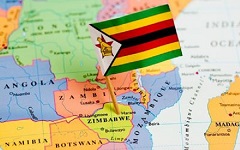(Last Updated on October 30, 2015 by Editor)
ZIMBABWE – Zimbabwean government is enforcing the IPPs to start delivering based on the signed contracts
In Zimbabwe, government is currently drafting a policy aimed at ensuring IPP licence holders implement approved projects.
Zimbabwe Energy Regulatory Authority (ZERA) CEO, Gloria Magombo, confirmed this decision based on some IPPs failing to fulfill their licence agreement in over a decade, Financial Gazette reports.
“We are currently working with the Ministry [of Energy and Power Development] to ensure that there is an IPPs policy, which will then be moved into law,” Magombo said.
According to Zimbabwean government, IPPs are not progressing with power generation, despite some being awarded licences more than 10 years ago.
Funding- a key factor
ZERA has so far licenced 22 IPPs with a capacity to generate more than 5 000MW of electricity.
Although eight projects are under construction in the Lowveld in the south-east of Zimbabwe, there are still worries over IPPs being unable to deliver sufficient power capacity within the allocated time, due to shortages in funding.
IPPs expected to increase electicity generation output
Some of the licenced IPPs include Essar Africa Holdings (600MW), China Africa Sunlight (Pvt) Limited (120MW) and Nyangani Renewable Duru Mini Hydro.
Others include the proposed Sengwa Power Station (2 400MW), Lusulu Power Plant, to the north of Sengwa in Binga (2 000MW) and Eunafric Power Station (120MW).
Government approved the IPP licences, hoping that they would supplement ZESA, which is presently struggling to provide enough electricity due to reduced power generation at all of its power stations.











